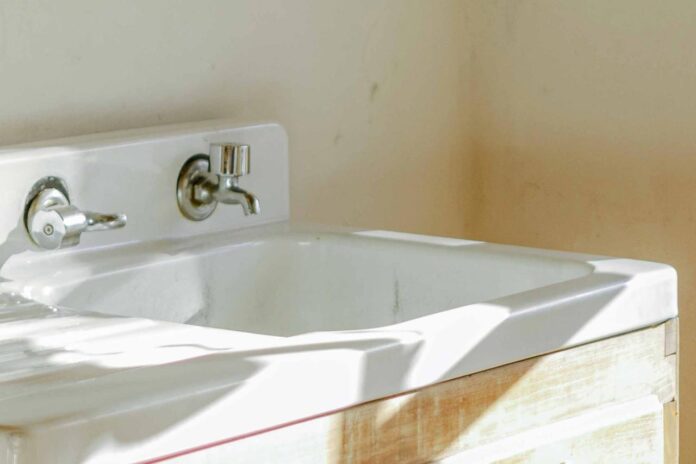If you are like us, managing fraternity and sorority facilities was not a part of the list of reasons why we got into the field of student affairs. We did not dream of knowing the clearance needed for a garbage truck, being able to find appropriate points of egress in any room, or learning more about rat infestations than anyone should ever know; but we did learn the work of fraternity and sorority housing relies on the same fundamental priorities as much of the work of student affairs: trusting relationships, consistent and equitable procedures, and a dedication to supporting the holistic well-being of students. We hope some of what we have learned along the way will help you to design or redesign your housing systems and save you from a few hundred phone calls.
Build Relationships and Understand Who Is Responsible
Identifying stakeholders will be dependent on if chapter facilities are privately owned or owned by the institution. You’ll find it much easier to manage crises or other unpleasant issues if you have preexisting relationships and a clear understanding of which party oversees which elements of the facility. A good basic list of stakeholders to build relationships includes:
- House corporations
- House directors
- Chapter leadership
- Vendors (food, maintenance, lawn care)
- Neighbors and landlords
Safety
Focusing on basics can help provide a safe and secure chapter facility.
- Access control
- Exterior doors should have automatic closures and lock automatically.
- Key control should be handled by one individual, a house director or facility manager.
- There should be a plan for lost keys, including having key cores replaced on doors as needed.
- Exterior doors with keypads should have codes changed each academic term (semester/quarter).
- Lighting
- Exterior doors should all have bright lighting.
- Sidewalks and surrounding areas, such as parking lots, should be well lit and free of branches or other debris.
- Cameras
- Consider cameras on exterior doors and parking lots.
- Check with your insurance company regarding how long to retain footage.
- Provide house directors access to campus security alerts if possible, even if not employed by the institution.
City Codes
Consider reaching out to city officials to better understand regulations and codes. You’ll want to pay particular attention to fire codes, kitchen/food safety codes, and parking regulations.
Substance Free/Damp Housing
Be sure to understand specific policies surrounding substance use in chapter facilities.
- Substance Free
- Understand if this includes the yard/patio.
- May or may not include cigarettes, smokeless tobacco, and vaping.
- Damp Housing
- Understand which areas of the facility permit alcohol possession.
- May or may not include hard alcohol.
Housekeeping and Maintenance
Preventative housekeeping and maintenance can save you from many headaches and likely lots of money. Educating residents and house directors on expectations and procedures helps support prevention efforts.
- Housekeeping
- Teach residents basic housekeeping skills (i.e. taking out the trash) and maintain expectations around resident duties.
- Keep in mind high traffic events (i.e. recruitment, homecoming) and consider additional needs like walk off mats or an additional dumpster run.
- Maintenance
- Knowledge of where water, gas, and electric shutoffs can reduce damage while waiting for repairs.
- Consistent maintenance procedures empower students to express concerns and keep facilities in good working order.
Live-In Requirements
When putting significant money into facilities, it is important to ensure that the facility will be fiscally supported by the chapter. Live-in policies should consider several factors to support success.
- Does the policy consider changing chapter sizes?
- Is there a clear procedure for how to enact the live-in requirement?
- Are we helping the chapter to explain their process during recruitment?
Facility management often includes high stress scenarios because it inherently involves the students’ basic need for safe shelter. Thoughtful preparation, strong working relationships, and a thorough understanding of stakeholder responsibilities can help to avoid some of these situations and reduce stress when unanticipated issues arise. While roles which involve the oversight of fraternity and sorority housing will always be full of new surprises, thoughtful and well-communicated plans will help to reduce the day-to-day tasks in these roles.
About the authors
Teri Cugliari currently serves as Associate Director of Sorority and Fraternity Life at The Ohio State University. In her role, Teri specifically oversees SFL housing, including educational programming and approval for second-year housing. Teri holds a bachelor’s degree from Kent State University and a master’s degree from Clemson University. She is a member of Alpha Delta Pi sorority and serves the organization as an international officer as Panhellenic Relations Director for the Northern Division. In her spare time, she enjoys exploring the Columbus Metro Parks with her standard schnauzer, Wellington, who is a hot mess.
Dr. Kate Butler currently serves as Director of Fraternity and Sorority Life at the University of Cincinnati. In several previous roles, Kate oversaw fraternity and sorority facilities with a variety of owner/operator arrangements. Kate holds a bachelor’s degree from Northwestern University, a master’s from Vanderbilt University, and a doctorate of education from The Ohio State University. She is a member of Chi Omega and serves the organization as a member of the Risk Management Committee.

